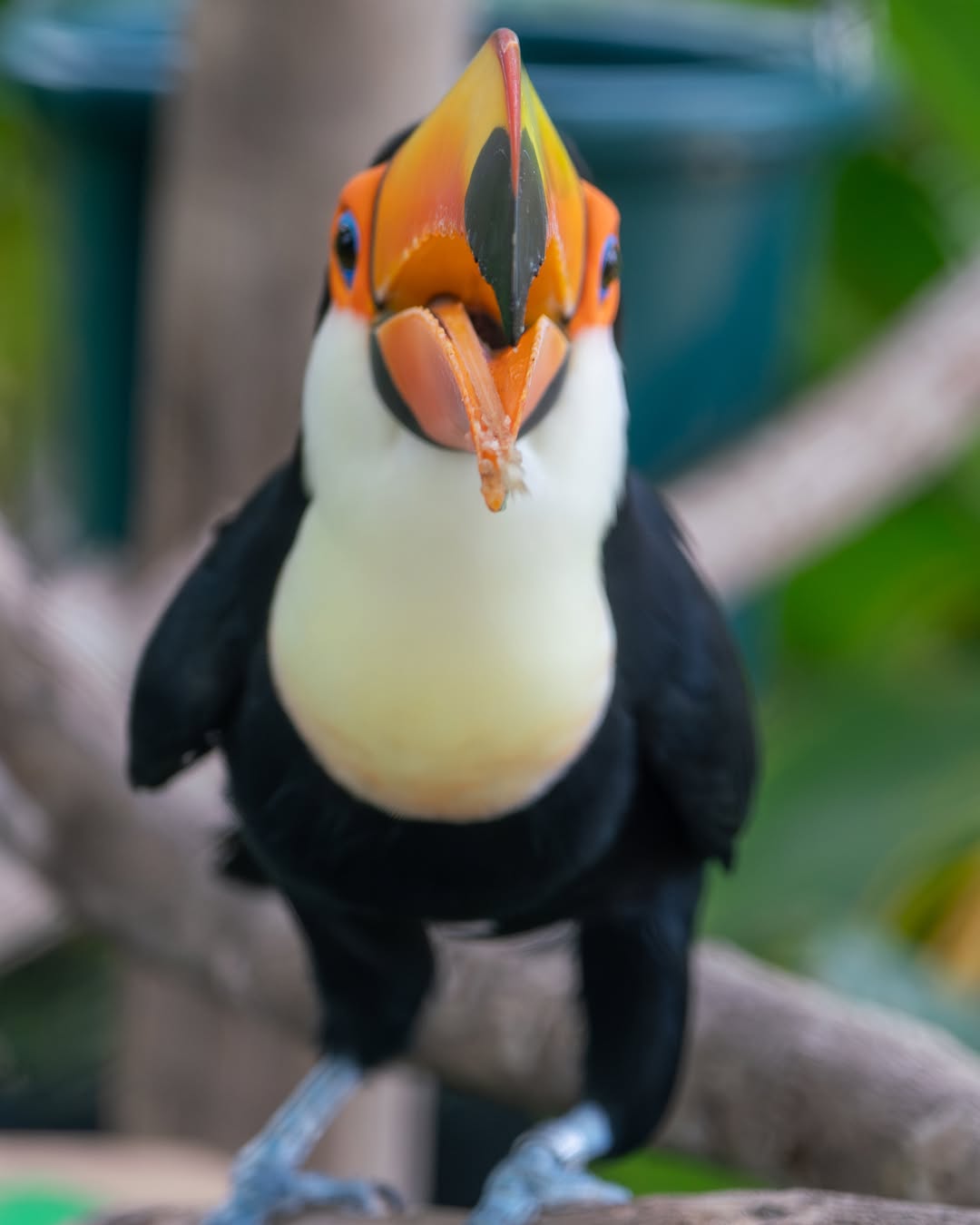- Learn about Macy, the toucan, and its remarkable physiology, focusing on its distinctive tongue.
- Discover the importance of Tongue Out Tuesday for promoting wildlife conservation and awareness.
- Explore the broader role of zoos in conserving biodiversity and educating the public.
- Understand the ecological value of toucans in their natural habitats and their role in forest dynamics.
- Delve into the strategies for zoo management that prioritize animal welfare and species survival.
The final Tongue Out Tuesday of the year is dedicated to a very special resident at the zoo: Macy, the toucan. Macy’s tongue is not just one of its standout features but is an essential part of its feeding strategy and communication. A toucan’s tongue is interestingly serrated, much like a feather, and is about six inches long. This fringed structure is an enthralling subject of study; it aids in the consumption of a varied diet, from fruits to insects. The texture helps in grabbing food effectively, making it a tool of necessity in the bird’s daily survival. By learning about such physiological attributes, we gain richer insights into the evolutionary adaptations that have allowed toucans to thrive.
Tongue Out Tuesday serves a purpose beyond a fun social media highlight; it’s a strategic initiative to foster wildlife conservation awareness. This engaging platform allows zoos to showcase unique animal traits, sparking curiosity and concern for various species. By highlighting Macy’s exceptional tongue, the campaign educates the public about the significance of each feature in relation to survival and habitat interaction. Such initiatives are pivotal in creating a bridge between zoo visitors and the complex needs of wildlife conservation.
Zoos today are more than mere places for animal displays; they are essential contributors to biodiversity conservation and environmental education. They play a dual role in species preservation and public engagement, crucial for encouraging sustainable practices. By housing species like Macy, zoos provide a tangible connection to the animal kingdom, important for fostering a global perspective on conservation efforts. Recent strategies involve habitat simulation, behavioral enrichment, and collaborative breeding programs aimed at maintaining genetic diversity across captive animal populations. This holistic approach serves not only in preserving threatened species but also in creating educational narratives tied to real-world conservation science.
Toucans, like Macy, are integral to their native ecosystems, notably in tropical rainforests. Their ecological role extends beyond fruit consumption. By dispersing seeds through feeding, toucans aid in forest regeneration, ensuring diverse plant communities. This interdependence underscores the importance of preserving both animal and plant species within these habitats. As top fruit eaters, toucans help maintain the equilibrium between flora and fauna, promoting forest health.
Effective zoo management is fundamental to achieving conservation goals. Prioritizing animal welfare is a multifaceted task involving healthcare, nutrition, and psychological well-being. For example, replicating natural conditions requires expertise in both environmental control and animal behavior. Advances in technology, such as thermal imaging for health monitoring and innovative enclosure designs, are pivotal in providing suitable habitats for species like Macy. Furthermore, global collaboration is key. By working with international conservation bodies, zoos can engage in species recovery plans, informative exchanges, and coordinated research efforts. These partnerships magnify the impact of local efforts on a global scale, ensuring the survival of species at risk.
The contributions of zoos extend to broad educational outreach, empowering communities to value sustainable practices. By facilitating field trips, interactive exhibits, and educational workshops, zoos engage audiences of all ages, fostering a deeper understanding and appreciation for wildlife. Developing such connections is vital, as growing awareness can inspire action toward environmental stewardship.
Macy’s inclusion in Tongue Out Tuesday is more than a nod to her striking characteristics; it’s a celebration of diversity in nature. Each feature plays a role in the broader story of survival and adaptation. Through Macy and the many other residents, zoos continue to highlight the marvels of the animal kingdom, advocating for the protection of these wondrous beings for generations to come.
*****
Source Description
The final Tongue Out Tuesday of the year is brought to you by one of the most unique tongues at the Zoo, Macy, the toucan!


